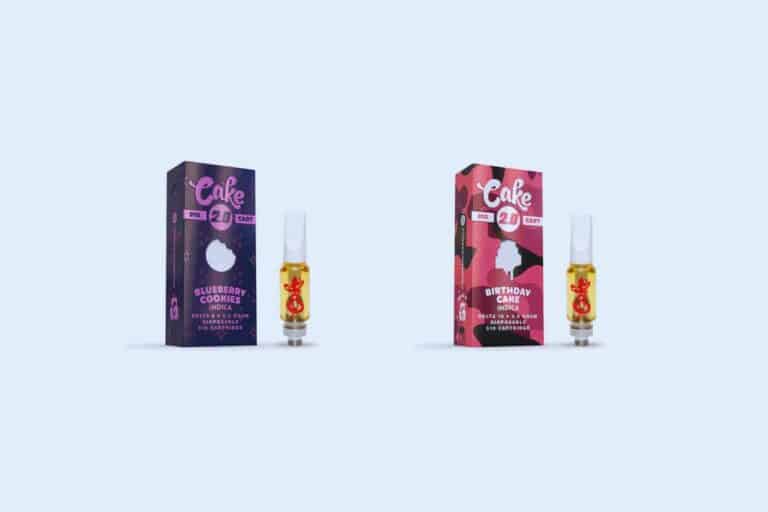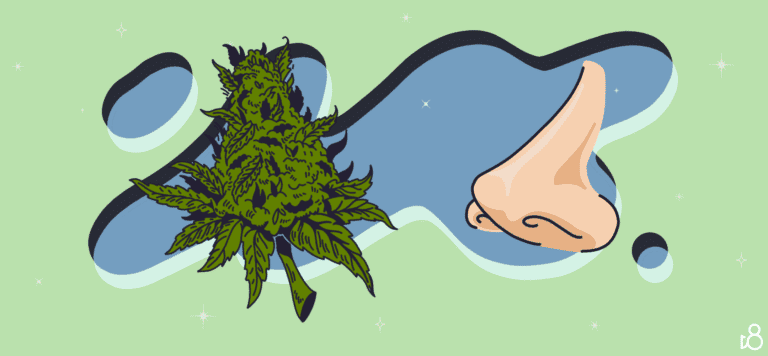Is Delta-8 THC Legal in Alaska? State Law Clarified
Got a curiosity for the cannabis world? Before diving into the deep end, let’s dig into what’s what with delta-8 THC in Alaska. Picture it as the chilled-out cousin of delta-9 THC, the stuff in weed that sends you flying. The 2018 Farm Bill gave the green light to hemp goodies, including delta-8, across the nation. Hold your horses, though! Each state has its playbook, and boy, are they different. If Alaska’s where you hang your hat, hang tight to find out if your delta-8 adventure will be smooth sailing or if there’s trouble ahead.
Table of contents
Alaska’s approach to the legality of delta-8 THC is informed by both federal legislation and its own state laws on cannabis products. As of my last update, while recreational cannabis is legal in Alaska, this does not automatically translate to a blanket legality for all THC compounds. Delta-8 THC, despite being derived from legal hemp material, may fall into a gray area of the law depending on how state statutes are interpreted regarding THC concentrations and sources.
Your understanding of delta-8 THC’s legality in Alaska should be informed by the most current state legislation and any relevant regulatory updates. While the federal government has specific stipulations surrounding hemp-derived products, Alaska may have its own enforcement and regulatory measures that impact the availability and legality of delta-8 THC. It is important to stay informed about the latest state legal proceedings and decisions that could affect the status of delta-8 THC.
Delta-8 THC Overview
Delta-8 THC is a cannabinoid derived from hemp, and it’s similar to delta-9 THC, the primary psychoactive component found in marijuana. However, delta-8 THC typically has a lower psychotropic potency. When you hear about THC, it’s often delta-9 THC that’s being referenced, but delta-8 is gaining attention for its own unique effects and legal status.
Your understanding of THC (tetrahydrocannabinol) should include knowing that it’s one of many cannabinoids found in the cannabis plant. Though delta-8 THC naturally occurs in small amounts, advancements in extraction and processing have made it more accessible. It’s often sourced from industrial hemp, a plant with less than 0.3% delta-9 THC by dry weight, which is legal to cultivate under federal law.
As you explore the world of THC, be aware that delta-8 offers a different experience. People report a clearer high with reduced anxiety compared to delta-9 THC. This has made delta-8 THC particularly intriguing to those sensitive to the sometimes intense effects of traditional THC products.
| Key Point | Detail |
| Source | Industrial hemp |
| Similar to | Delta-9 THC, but with lower potency |
| Legal Status (Federal) | Derived from legal hemp |
| Psychoactive Property | Yes, but milder compared to delta-9 |
Keep in mind, the legality of delta-8 can vary by state. It’s crucial to stay updated with your local laws concerning hemp-derived cannabinoids. Despite its federal legality through hemp, some states have specific restrictions on all forms of THC, including delta-8.
Federal and State Regulations
In navigating the complexities of Delta-8’s legality, you must understand the interplay between federal directives and state-specific rules that govern its use and sale.
2018 Farm Bill and Federal Law
The 2018 Farm Bill fundamentally altered the legal landscape of hemp-derived products at the federal level. By removing hemp, defined as cannabis with less than 0.3% Delta-9 THC by dry weight, from the Schedule I controlled substance category, it effectively legalized hemp and its derivatives. This includes substances such as Delta-8 THC, provided they meet the specified THC threshold. It’s crucial to remember that while this bill allows for hemp-derived compounds to be federally legal, it does not automatically lift all restrictions, especially regarding the synthesis of psychoactive cannabinoids.
Alaska’s Legal Framework
In the State of Alaska, cannabis regulations are delineated by the Department of Natural Resources and further shaped by Senate Bill 6. The state’s legal framework follows the federal guidelines, classifying industrial hemp with less than 0.3% THC as legal. Yet, when it concerns Delta-8 THC, Alaska maintains its rigorous scrutiny. The state has not explicitly expressed a ban on Delta-8; however, due to its psychoactive nature, Delta-8 THC products might fall under different regulatory measures compared to non-psychoactive hemp products. Thus, your understanding of legality must take into account both the broad strokes of federal law and the nuanced details of Alaska’s regulations.
Legal Status of Delta-8 THC in Alaska
When considering the legality of Delta-8 THC in Alaska, it’s important to be aware of local regulations and the state’s stance on cannabis-related compounds. As of my knowledge cutoff date, Delta-8 THC is legal in Alaska, but this situation can evolve, so always double-check with the latest state laws.
Regulations: Delta-8 THC falls under a legal grey area federally but is not listed as a Schedule IIIa controlled substance under Alaska state law. Unlike Delta-9 THC, which is the primary psychoactive component in marijuana and is heavily regulated, Delta-8 THC is derived from hemp and thus is not banned under the same provisions.
Possession Limits: There are no specific possession limits defined for Delta-8 THC in Alaska due to its legal status. However, it is advised to be cautious as laws can change, and different interpretations can arise with regards to its legality at any time.
Here’s a quick overview:
- Legality: Legal in Alaska, as not classified under the state’s controlled substances.
- Possession: No clearly defined limits; caution is advised.
Remember, although legal, Delta-8 THC may still affect your body and mind. Ensure to purchase from reputable vendors to avoid products that might contain more heavily regulated compounds like Delta-9 THC. Always stay informed about the latest updates on cannabinoid regulations in your state.
Delta-8 THC Products and Markets
As you explore the marketplace for Delta-8 THC, you will encounter a variety of hemp-derived products that have gained popularity due to their availability and distinctive offerings.
Available Product Types
Your search for Delta-8 THC products reveals a market rich with options. Gummies and oils are among the most sought-after forms, cherished for their convenience and ease of use. Additionally, you can find flower options that can be smoked or vaped, and cartridges for those who prefer a more traditional vaping experience. Dispensaries and online retailers provide these products, aiming to cater to a diverse consumer base with varying preferences.
- Edibles: Such as gummies and candies.
- Oils: Often positioned as tinctures.
- Flower: Hemp flower infused with Delta-8.
- Vape Cartridges: Pre-filled with Delta-8 oil for vaping.
Quality and Testing Standards
The sale of Delta-8 products hinges on adherence to quality and testing standards which are crucial for product purity and consumer safety. While the legal landscape is complex and varies by state, in regions where Delta-8 is legal, it is imperative that products are rigorously tested and regulated to ensure safety and efficacy. You should look for products that are transparent about their testing procedures, with certificates of analysis (COA) readily available, safeguarding against contaminants and verifying the product’s cannabinoid content.
- Testing: Look for third-party lab results.
- Regulated: Verify the product complies with local regulations.
- Purity: Ensure there are no harmful substances in your product.
Your understanding of the Delta-8 THC market will be enhanced by knowledge of the available product types and the importance of regulated testing to ensure purity and safety. Always be meticulous in verifying product quality to ensure a positive and legal experience with Delta-8 THC.
Health and Consumption
When considering the health implications and consumption aspects of Delta-8 in Alaska, it’s important to understand its therapeutic effects as well as its psychoactive potential and safety. Your awareness of how this substance interacts with your body will guide you towards informed decisions about its use.
Therapeutic Effects
Delta-8 THC is a cannabinoid similar to CBD (cannabidiol) and Delta-9 THC, with its own set of therapeutic benefits. Research suggests that Delta-8 may offer some health benefits, such as nausea reduction, which can be particularly pertinent for individuals undergoing treatments like chemotherapy. Additionally, there’s growing interest in the potential roles of cannabinoids like CBG (cannabigerol) in addressing conditions like inflammation and pain.
Psychoactive Potential and Safety
Delta-8 THC is psychoactive, albeit less potent than its close relative, Delta-9 THC. Your experience with Delta-8 can result in a milder high, which might reduce the likelihood of anxiety and paranoia that is sometimes associated with cannabis consumption. However, it’s crucial to consider the potential risks involved, as the long-term health effects and safety profile of Delta-8 use are not yet well-documented. Be aware that its psychoactive nature could affect your cognitive and motor functions, and always use it with caution.
Legal Alternatives and Hemp Derivatives
When exploring your options for legal cannabis products in Alaska, you have several choices beyond Delta-8 THC. It’s important to understand the distinctions between recreational marijuana, which includes Delta-9 THC, and the variety of hemp-derived products available.
Delta-9 THC and Recreational Marijuana
In Alaska, recreational marijuana that contains Delta-9 THC is legal for adults 21 years of age or older. Since the state legalized recreational cannabis in 2014, you can legally purchase and possess up to one ounce of marijuana and cultivate a limited number of plants for personal use. This includes products rich in Delta-9 THC, which is the primary psychoactive component found in cannabis.
- Recreational Use: Allowed for individuals 21+
- Possession Limit: Up to 1 ounce of marijuana
- Cultivation: Restricted to six plants, with three or fewer being mature, flowering plants
Other Cannabinoid Products
Hemp-derived products offer a wide array of cannabinoids, such as CBD (cannabidiol), CBG (cannabigerol), and THC-O. Each of these compounds has distinct properties and potential benefits. CBD is popular for its non-psychoactive effects and is widely accepted across many states. CBG is another non-psychoactive hemp derivative that is gaining attention for its possible therapeutic effects. Additionally, compounds like THC-O and HHC (hexahydrocannabinol) are newer hemp-derived cannabinoids with varying legal statuses; always check the latest state regulations regarding these specific cannabinoids.
- Hemp-Derived Products: Include a range of cannabinoids like CBD and CBG
- THC-O and HHC: Legal statuses vary and should be verified
Remember to stay informed about the laws surrounding cannabis products, as they may vary widely by state and change over time.
Impact on Consumers and the Market
When considering the status of delta-8 THC in Alaska, your understanding of its legality influences both consumer behavior and market trends. Confusion over the compound’s legal status can affect your choices and has a tangible impact on the economic dynamics of cannabis products.
Consumer Awareness and Confusion
You might be unclear about whether delta-8 THC, often referred to as “diet weed” for its milder effects compared to delta-9 THC, is a legal substance in Alaska. Due to its synthesized nature from hemp, delta-8 has occupied a gray area. This confusion can impact your awareness and decision to use such products, which are available in various forms.
The availability of delta-8 THC products has been growing, yet understanding exactly how they interact with the brain’s receptors and the subtleties of their legality might be complicated for you as a consumer. Such uncertainty may drive a certain percentage of sales underground, potentially affecting the black market.
Market Dynamics
The popularity of delta-8 THC can cause shifts in the market, particularly in how it competes with products containing delta-9 THC, the primary psychoactive component in marijuana. If you perceive delta-8 as legal, it might affect recreational marijuana prices, potentially making the market more competitive.
- The consumer market for delta-8 THC may be dichotomous, with some opting for these products due to their perceived legality or different effects, while others may avoid them due to the potential for legal repercussions or confusion about the product.
- The black market might see an increase in activity if regulatory actions against delta-8 THC heighten, indicating that clarifying the legality could have significant economic implications.
Frequently Asked Questions
Understand the complexities of Delta-8 THC’s legal status in Alaska, the specifics of state statutes, and the key distinctions between various cannabinoids as it pertains to the law.
What is the legal status of Delta-8 THC in Alaska?
In Alaska, Delta-8 THC is currently in a gray legal area. While marijuana is legal in Alaska for recreational use, the legal status of Delta-8 THC can be more complex due to different regulations and interpretations of the law.
How does Sec 7 AS 11.71 900 14 of the Alaska Statutes pertain to Delta-8?
Section 7 AS 11.71 900 14 defines marijuana and THC as controlled substances, though this primarily pertains to Delta-9 THC. The statute’s language may not be explicitly clear regarding Delta-8 THC, which has resulted in ambiguity over its legal status.
Does Alaska law distinguish between Delta-8 and Delta-9 THC legality?
Alaska law does not explicitly differentiate between Delta-8 and Delta-9 THC. Due to this lack of distinction, while marijuana (containing Delta-9 THC) is legal, the status of Delta-8 remains uncertain and potentially subject to the interpretation of federal law.
Which states have implemented bans on Delta-8 THC products?
States including Colorado, Montana, and New York have restricted or banned the sale of Delta-8 THC products. Regulations continue to evolve, so it’s essential to stay updated on each state’s stance.
Are travelers permitted to bring Delta-8 THC products through TSA security, specifically in Alaska?
TSA’s main concern is safety and not necessarily enforcing drug laws. However, since the legality of Delta-8 is unclear, it is risky to carry such products through TSA security, as the repercussions depend on the interpretation of the law at the time.
What is the current legal standing of CBD products in the state of Alaska?
In Alaska, CBD products derived from hemp with less than 0.3% Delta-9 THC are legal. This includes a wide range of CBD oils, topicals, and edibles that comply with state and federal regulations.







